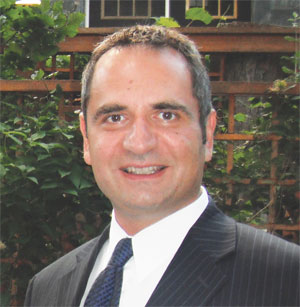As Ontario paralegals lost their bid to sit past the bar in courtrooms, another recent decision considered whether measurements of their competency should be subject to the same standard as lawyers.

Superior Court Justice Bruce Durno considered the question after an appellant in
R. v. Bilinski accused his paralegal of deficient service to the extent that the guilty verdict in his case was in doubt.
Janusz Bilinski, who was facing an accusation of assault, argued that since the Law Society of Upper Canada has started regulating paralegals, “a person retaining a paralegal should now receive the same representation, as though he or she had retained a counsel,” according to the ruling.
Durno dismissed Bilinski’s argument, emphasizing that the differences between paralegals and counsel remain.
“There remains a clear distinction between the representation that an accused person is entitled to when they retain a lawyer versus when they retain a paralegal,” wrote Durno.
He added: “The appellant has provided no evidence that the LSUC or any other regulatory body has now assured the public that the representation level is the same. Indeed, the record supports a contrary conclusion. The case-specific evidence on this appeal supports that conclusion.
“The appellant knew he was not retaining a lawyer. He knew the agent had less legal training than a lawyer and he knew the agent would charge less than a lawyer.”
The judge also dismissed the appellant’s alternative argument that there should be a new standard, “in essence a middle-ground,” to gauge the quality of service by paralegals. Bilinski argued such a standard would be lower than for counsel in that paralegals would be able to make more mistakes than lawyers.
“First, there is no set number of mistakes that lawyers can make before their conduct of the case reflects incompetence,” Durno responded.
“Second, to succeed on an appeal, there still has to be a miscarriage of justice established. While at some point the number of errors may become a factor, any new test would have to nonetheless focus on the quality or results of the errors and not the quantity.”
Durno’s June 14 decision preceded a ruling by Superior Court Justice Michelle Fuerst that found a justice of the peace’s order barring paralegals from sitting past the bar in court doesn’t constitute discrimination. Justices of the peace have jurisdiction over what they’d like to see happen in their courts, said Fuerst.
“The justice of the peace did not exceed her jurisdiction or breach the principles of natural justice in ordering that only lawyers sit in front of the bar when court was in session. The application fails on this issue.”
The application, brought by paralegal Marian Lippa, also sought a reconsideration of the order in which the court calls matters. Lippa took issue with a judicial officer’s order to hear matters brought by senior counsel before those of paralegals.
Although Fuerst said such an arrangement isn’t always appropriate, she didn’t see a breach of natural justice or the Charter of Rights and Freedoms in the preference for that particular order. “The order about the manner in which cases would be called in court did not impinge on Ms. Lippa’s life, liberty or security of the person. It may have impinged on her economic interest, but that is not an interest protected by s. 7,” wrote Fuerst.
Fuerst’s decision sets an important precedent, according to Nathan Baker, a lawyer who acted as an intervener in the case on the behalf of the York Region Law Association.
“I think that the recognition of the justice of the peace’s power to control their own courtroom, including seating and order of the call of the list, will be referred to for years to come,” he says.
“Not a lot of cases deal with issues such as this, so even the court’s
obiter comments are likely to be referred to for some time to come.”
It’s also important that the case recognized paralegals “as a separate set of legal providers,” Baker says, noting that the distinction will help the public understand the difference between the two licensees and the services they provide.
But according to John Tzanis, president of the Paralegal Society of Ontario, an arrangement that makes paralegals wait until all lawyers finish their matters before they can go ahead is neither fair nor efficient.
“A lot of paralegals are charging much less than lawyers are. Having to wait all day to complete a five-minute matter and being paid 80 bucks or 100 bucks or something nominal to wait all day long while lawyers who are making $400, $500 an hour . . . are getting heard right away and can get back to their offices and make more money,” he says.
“Our entire day is blown in one minor matter,” adds Tzanis, who says the paralegal society is “disappointed” with the outcome of the Lippa application.
According to Tzanis, an order of call that makes paralegals wait until lawyers finish their matters is akin to telling poor litigants to wait until the court has addressed their rich counterparts.
“In the eyes of the client, how does this appear to them? That’s what we’re talking about here,” he says.
Tzanis says he hopes the law society and the Ministry of the Attorney General will work to smooth out these issues. But if it appears change will come no other way, he suggests Lippa will likely appeal the decision.
For more, see "Battle over paralegals' courtroom status heats up."

 Superior Court Justice Bruce Durno considered the question after an appellant in R. v. Bilinski accused his paralegal of deficient service to the extent that the guilty verdict in his case was in doubt.
Superior Court Justice Bruce Durno considered the question after an appellant in R. v. Bilinski accused his paralegal of deficient service to the extent that the guilty verdict in his case was in doubt.